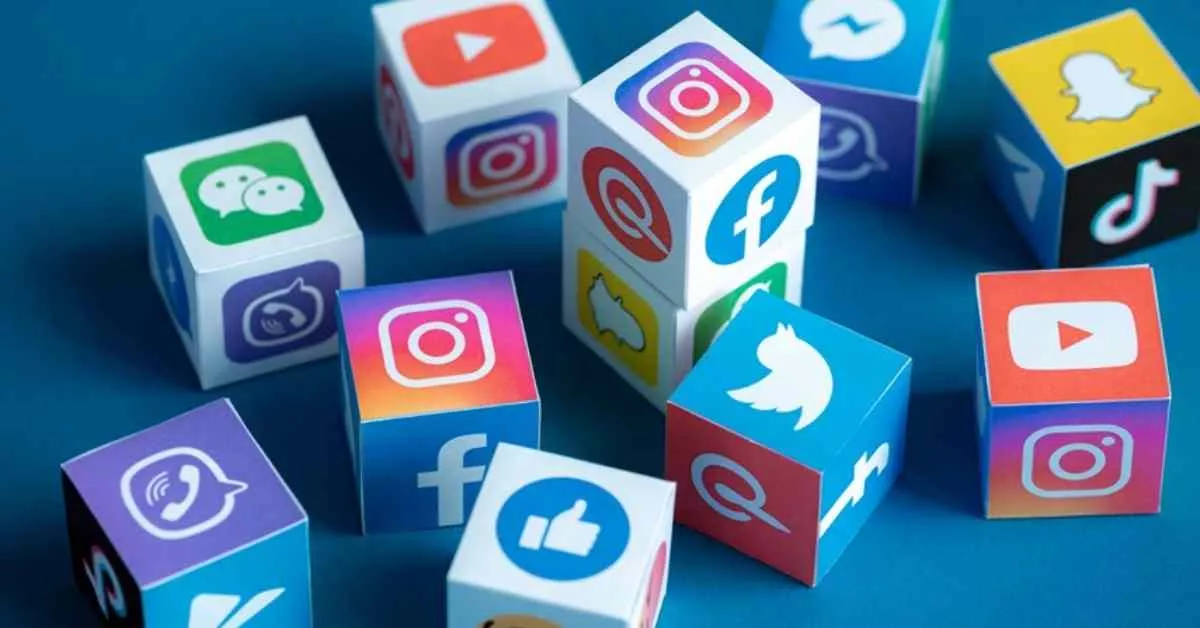The Pros and Cons of Social Media: An In-Depth Look
 softwarecosmos
softwarecosmos
Social media has become an integral part of our lives. From Facebook to Instagram to Twitter, social platforms connect us to friends, family, and communities around the world. But social media also has its downsides. Understanding the pros and cons of social media can help us use it more mindfully. This article examines the benefits and drawbacks of these platforms for teens and educators.
Introduction
Social media platforms like Facebook, Instagram, and Snapchat seem like a normal part of life for most teens and adolescents. But these sites haven’t actually been around that long. Facebook launched in 2004, when today’s high school seniors were just starting elementary school. Instagram debuted in 2010, and Snapchat came just two years later in 2012.
In less than a decade, social media has gone from a novelty to a ubiquitous presence in young people's lives. According to a 2018 Pew Research study, 89% of teens surveyed said they use some form of social media. Snapchat and Instagram were the most popular platforms among teens.
This rapid adoption of social media has left many adults, educators, and parents wondering about its impact. Do the benefits of connecting and sharing online outweigh potential harms like cyberbullying or social isolation? There are good arguments on both sides of this debate.
This article will examine the pros and cons of social media for teens and students. First, we’ll look at some of the major benefits these platforms offer. Then, we’ll explore the potential risks and downsides. Understanding both perspectives can help us make informed choices about how to engage online.
Benefits of Social Media for Teens
While risks exist, social media offers many advantages for teens looking to build friendships and explore interests. Here are some of the major benefits of social media for youth and students today.
Connecting with Friends and Peers
One of the biggest appeals of social media for teens is the ability to connect with friends. Platforms like Instagram and Snapchat allow teens to communicate and bond with their social circles. Sharing photos, commentary, and conversations via these apps helps teens feel closer with friends.
Social media also helps teens connect with peers who share similar interests. By following creators, influencers, artists, and commentators, teens can join larger communities that reflect their hobbies, identities, and beliefs. This sense of community can be very powerful for teens still figuring out who they are.
Self-Expression and Exploration
Posting on social media platforms allows teens to express themselves creatively and explore their evolving identities. By sharing photos, videos, and commentary, teens can reveal, shape, and broadcast who they are to the world.
Theoretically, social media gives teens a platform to showcase their authentic selves. Of course, the reality is more complex, as the temptation to conform to peer pressure exists online as well. Still, used constructively social media can be a valuable tool for self-discovery.
Entertainment and Interests
For better or worse, social media offers teens endless entertainment. Scrolling through videos, photos, and commentary on apps like TikTok can become addictive. But social media also lets teens explore hobbies and interests in new ways.
Following creators in areas like art, sports, gaming, or fashion gives teens new perspectives. Social media offers exposure to new ideas that can open teens’ eyes. Moderation is important, but joining communities centered around hobbies and interests can help develop teens’ identities.
News and Current Events
Getting updates on current events from social media platforms has both advantages and disadvantages compared to traditional news sources. The benefit is that teens can get information directly from original sources more easily.
Following activist groups, journalists, politicians, and thought leaders helps teens stay connected to the latest causes and events. Social media provides raw, real-time coverage that traditional news can’t always match. The challenge is determining credible from misleading information, but social media offers teens a portal to the world.
Education and Learning
When used constructively, social media can even enrich teens’ education. Connecting with classmates helps teens collaborate on group assignments or projects. Accounts that share study tips, science facts, historical insights, and more make learning more engaging.
Some teachers are even incorporating TikTok, Instagram or other platforms into lessons themselves. There are certainly risks to manage, but social media offers new educational opportunities as well. Used responsibly, it can complement teens’ schoolwork and academic interests in powerful ways.
Concerns About Social Media's Impact on Teens
Social media clearly provides many benefits for teenagers looking to connect with friends and explore interests. However, there are also some significant concerns about the impact of social media on teens’ well-being and development. Here are some of the major areas of concern parents, teachers, and counselors have voiced.
Cyberbullying and Toxic Behavior
One of the most worrying risks of social media is the potential for bullying, harassment, and toxic speech. Because teens are constantly connected online, cyberbullying can be even more invasive than traditional bullying. Harmful behavior often goes unchecked on social platforms.
Anonymous apps like YikYak also enable bullying by making the perpetrators untraceable. The constant pressure to post online and gain approval also encourages toxic behavior like putdowns and harmful comparisons. Developing self-esteem resilience is critical for teens navigating these spaces.
Social Pressures and Perfectionism
The culture of likes, filters, and curated profiles on apps like Instagram can warp teens’ perspectives, creating unrealistic standards and expectations. Teens may obsess over presenting perfect images of beauty, status, and success online. The need to constantly manage their social image can take a major toll on teens’ mental health.
These pressures apply both to teens’ online persona and social status at school. Social hierarchies and exclusions now play out online as much as in person. Teens feel the need to measure up to their peers’ curated social presences constantly. Counseling around self-worth and healthy comparison is essential.
Loss of Privacy and Permanent Records
Teens often don’t fully consider the long-term consequences of their social media use. Content shared online leaves permanent digital footprints. Yet teens brains are still developing decision-making abilities and impulse control. The result is over-sharing of provocative or compromising content, from explicit texts to drug and alcohol use.
These posts can surface years later with life-altering consequences. Colleges, employers, and communities may see things meant just for friends. Teens need better understanding of privacy settings and the permanence of online sharing. Mentoring around digital citizenship is crucial.
Distraction and Disconnection
While social media fosters digital connections, it can reduce more meaningful in-person interaction. Teens may become so distracted by constantly checking notifications and feeds that they miss out on experiences happening right nearby. Texting with distant friends can overshadow talking with family.
Social media is also designed to be addictive, with endless scrollable content. Teens may become dependent on the constant stimulus. Setting guidelines around usage, limiting access before bed, and designating tech-free times can help manage this distraction. Teaching teens to balance the digital world with real-world connections is important.
Sleep Disruption
Engaging with screens and social media before bed can negatively impact teen sleep patterns. The blue light emitted from devices tricks the brain into feeling awake. Teens end up staying up later consuming media and struggle to fall asleep. This sleep deprivation impairs teen mental health, concentration, and decision-making abilities.
Many teens also report being woken up by late-night notifications from apps - further disrupting sleep. Having consistent cut-off times for phone usage (ideally 1 hour before bed) is one remedy. Charging devices outside bedrooms overnight also helps teens unplug. Prioritizing sleep hygiene teaches healthy social media habits.
Risky Behavior
Seeing friends post about partying, drinking, drugs, or sexual behavior on social media can normalize risky actions for teens. Peer influences are already strong in adolescence, and social media amplifies this exponentially. Teens may feel the need to push boundaries offline to match what they see friends posting online.
It is important for educators and parents to counter-message this content, speaking to both legal and emotional consequences. Teaching teens to think critically about social media messages and brace against negative peer pressure is key. Discussing issues like consent and substance use should include a social media dimension as well.
Best Practices for Teens and Educators
The many pros and cons of social media for teens make it clear there are few easy answers. Blocking or banning teens from using sites often backfires or pushes usage underground. Instead, the healthiest approach is teaching savvy, mindful usage of social platforms.
Here are some best practices for teens themselves, as well as parents and educators, to foster responsible social media use.
For Teens:
Set daily time limits for social media usage like 1 hour a day, and stick to them.
Designate tech-free times like during meals, 1 hour before bed, and while studying or reading.
Disable distracting notifications and remove social media apps from your home screen.
Evaluate who you follow, curating your feed to accounts that inspire and uplift you. Mute or unfollow negative voices.
Be selective about what personal information and photos you share publicly or privately online. Always think long-term.
Before posting anything provocative or controversial, ask yourself how you would feel if it was shared widely.
Remember that social media only shows curated highlights, not real life. Don't compare yourself to staged posts.
For Parents and Educators:
Have open, non-judgmental talks with teens about both the benefits and risks of social media use. Ask questions more than lecturing.
Help identify times and situations when social media use may become unhealthy. Collaborate on solutions like setting limits.
Model responsible social media behavior yourselves. Be mindful of your own screen time and what you post publicly.
Learn about the social platforms teens are using so you understand the landscape. Follow and discuss with teens occasionally.
Watch for possible signs of problems like declining school performance, secretive behavior, or changes in mood. Social media may play a role.
Advocate for privacy, anti-bullying, and digital citizenship policies at your schools and in your communities. Lobby social platforms too.
Conclusion
Social media is a complex, evolving aspect of modern adolescent life. There are significant benefits for teens seeking connection with others and exploring interests online. But serious concerns from mental health risks to privacy threats exist as well. Rather than outright bans, the healthiest approach involves conversations on mindful usage and setting boundaries.
With guidance from compassionate mentors, teens can learn to balance virtual experiences with real-world living. Parents, teachers, and counselors have a responsibility to monitor how social media impacts youth both positively and negatively. Social platforms should complement teens' lives rather than dominate them. Used conscientiously, social media can enrich teens' worlds instead of distorting them. But we must continue examining how to maximize benefits while minimizing harm.
Subscribe to my newsletter
Read articles from softwarecosmos directly inside your inbox. Subscribe to the newsletter, and don't miss out.
Written by

softwarecosmos
softwarecosmos
I love software, AI and Coding